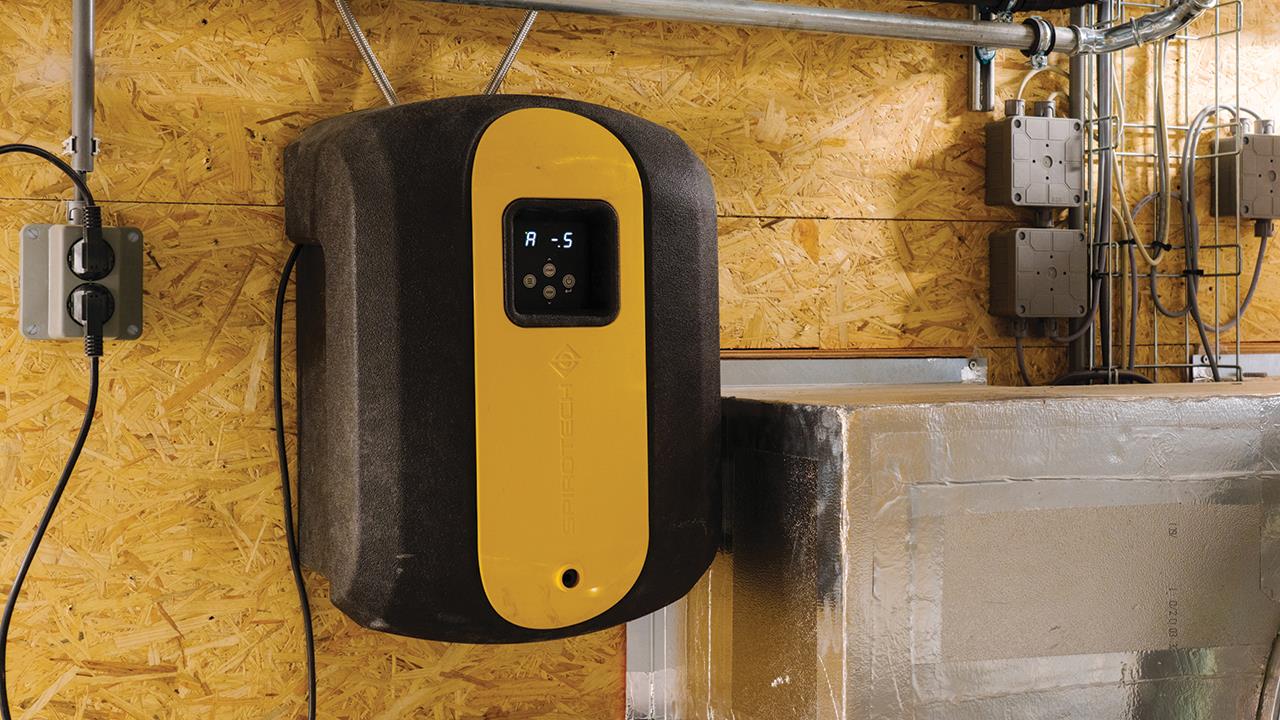

By now, most domestic heating installers are aware of the need for dirt to be removed from a heating system, with many boiler manufacturers requiring a dirt separator or filter to be installed to unlock extended warranties and comply with BS 7593. Additionally, more advanced engineers will also be recommending air separation, as a preventative measure against the occurrence of corrosion and the formation of magnetite within the system.
If they are not addressed, air and dirt accumulation in a domestic heating system can cause a series of issues, from simple annoyances, such as noisy pipework and radiator cold spots, through to premature parts failure in the boiler.
However, for larger domestic and light commercial systems, their impact is often magnified. Not only do they contribute to overall poor running of the system, they can also result in higher running costs, as well as the need for more frequent and costly maintenance – meaning more down-time and inconvenience for the end-user.
When it comes to larger, light commercial systems, it is important that an installer understands the different solutions available to keep system water in good health, and the benefits that each offer.
Do away with air and dirt
Treating the presence of air and dirt in a light commercial heating system is similar to treating it in domestic properties.
While similar technology, in the form of air and dirt separators, can and should be used, installers may need to select a larger size than they would usually fit for a domestic system. When installers are sizing up, they will need to keep in mind the heat output of the boiler and size of the pipework, as this will help determine what type of product is suitable.
Additionally, deaerators and dirt separators are designed to work with a certain flow rate, and this will dictate which size of appliance is required. If a deaerator or dirt separator is undersized, it will work, but it will not perform at its optimum level, which can lead to further inefficiencies.
Get the right balance
When working on larger domestic and light commercial systems, heating engineers are more likely to be dealing with multiple zones. In these instances, a hydraulic separator may be required to ensure the circuits do not interfere with each other and cause system inefficiencies.
A hydraulic separator should be considered in systems where primary and secondary pumps are used, when primary and secondary flows are not equal, or when a constant primary flow is required. A well-designed hydraulic separator, such as the SpiroCross AX-J, will not only perform hydraulic balancing, but will also feature both deaeration and dirt separation capabilities.
No pressure pressurisation
On light commercial projects, pressurisation is more likely to play a role, depending on the type of building being serviced. In most cases, a small degassing unit should be considered, and should be sized to match the pressure of the system.
This type of unit is ideal for low temperature and low pressure systems, where it is hard to predict where air will be released.
A mini vacuum degasser, such as the SpiroVent Superior S250 which is suitable for systems with a working pressure between 0.5-2.5 bar, creates its own environment to release gases from the fluid. This means that no matter where on the system it is installed, it will remove air effectively.
The unit works by drawing off a portion of the saturated fluid from the system, and creating an ‘under pressure’ in the vacuum vessel of the unit to release the dissolved gases. These liberated gases accumulate at the top and can then be expelled.
Over time, as air inevitably finds its way back into the system during maintenance, water replenishment, or from any leaks, most vacuum degassers can be set to operate at regular intervals to maintain an efficient balance between degassing and energy consumption.
By getting familiar with the wider range of water treatment solutions available and how these technologies can be used in light commercial applications, heating engineers will be in a prime position to offer all of their customers the same level of system protection, no matter the type of system.
If you'd like to keep up-to-date with the latest developments in the heating and plumbing industry, why not subscribe to our weekly newsletters? Just click the button below and you can ensure all the latest industry news and new product information lands in your inbox every week.